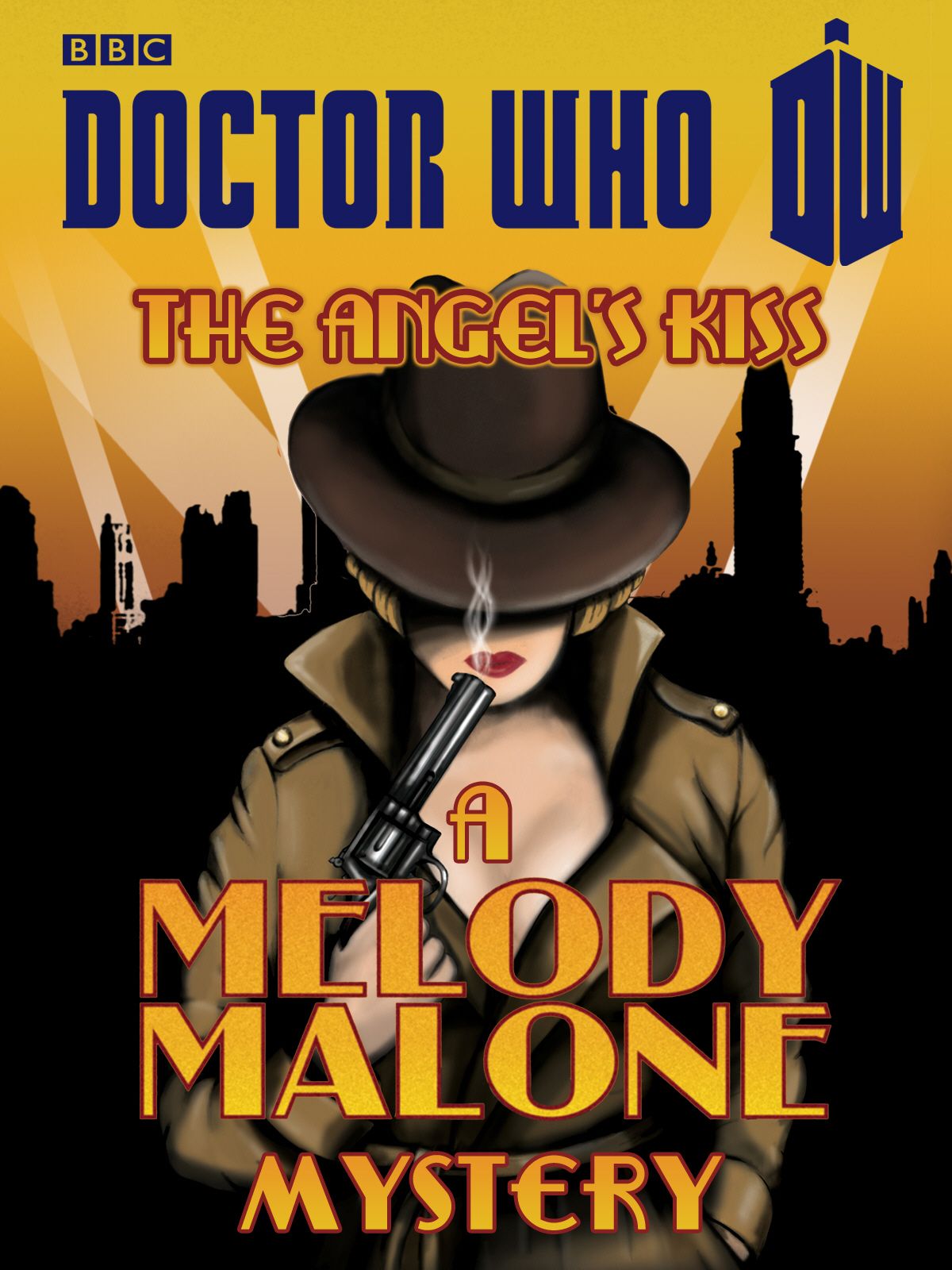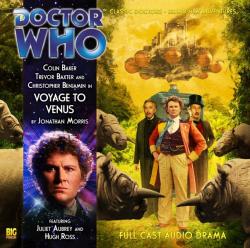The Angel's Kiss

Doctor Who - The Angel's Kiss
Written by Justin Richards
BBC Books
UK release: 4 October 2012
Available to purchase from Amazon UK
Tied into The Angels Take Manhattan, this ebook constitutes a prequel of sorts. It's most notable for adopting a cod noir style and presenting events from Melody Malone’s first person POV. The gambit allows author Justin Richards to enjoy himself, and his playful pastiche does a fine job of conveying River Song’s unusual world-view.
The decision to link a novella, or long-ish short story, to TATM fits tidily with that episode’s emphasis on clattering typewriters and storytelling practices, as well as imitating the Melody Malone book that we’re shown on screen. It therefore has a sort of instant authenticity. Yet one might have expected the novel the Doctor reads from to itself become a tie-in, with glimpsed on-screen chapter titles being fleshed out, precisely inter-linking ebook release and televised tale. Instead, The Angel’s Kiss eschews such direct expansion of the story world, and sets its sights on bit-part players such as Julius Grayle and Sam Garner the private eye. More substantial than recent online prequels, but nevertheless far briefer and less narratively developed than an episode, this ebook compresses its storyline into a fairly limited number of settings and incidents.
Perhaps the greatest difficulty with this e-extra is how it uses the Weeping Angels. Of course, Moffat’s own TV scripts have form here, with the Angels’ modus operandi shifting radically from appearance to appearance – sometimes they kill victims, other times they bounce people back in time. Here they don’t really do either of those things, but instead drain life/time energy in a novel manner. In a sense, then, the Weeping Angels can pretty much be used to play whatever temporal tricks their author desires; as long as “timey wimey” shenanigans are involved at some level, and mixed with narrative threat, then the Angels basically remain on-brand. What best characterises them as a monster is that they’ve never been set in stone; each new appearance adds to their powers and purposes. And this is certainly true of The Angel’s Kiss. Angels can be rewritten, especially when they're read. But I still felt that Richards’ storyline reduced its angelic evil to an overly convenient, plastic and malleable plot device at times. Certain other Who villains would have fitted more obviously into events, rather than the Weeping Angels being reworked to carry things.
Ebooks such as this may well offer one future for Doctor Who publishing. Presumably overheads are lower than print editions, something which may enable ebooks to be targeted at a smaller fanbase or readership compared to the relative mass market required for many current Who titles. (I’ve always lamented the fact that there was no further script book published after Series One, something which I’ve heard said was a result of that title’s poor sales; perhaps ebook releases would allow original scripts to once again see the light of day). But ebooks would presumably frustrate the eleventh Doctor himself; it’s difficult to tear out the final page, for example: endings remain obstinately in place. Perhaps ebooks like The Angel’s Kiss might also frustrate sections of fandom; you can’t put this one on the shelf, nor admire its cover art in physical form. At the risk of coming over all old school – as if I’ve been thrown out of time by mysterious forces – The Angel’s Kiss would still have been more compelling for me as a material thing.
Regardless of its format, though, this delivers a pleasurable and well-crafted addition to River Song’s story. The classic noir detective typically has to contend with a mysterious femme fatale, but Melody Malone wraps both roles into one elegant package, her career at the Angel Detective Agency never distracting from her desire to make an impression on the opposite sex. But whereas Alex Kingston’s TV performance leaves some room for ambiguity as to just how knowing River’s sexuality and manipulation of male characters might be, the problem with first person narration is that it converts the character’s allure and mystery into descriptions of pointing the right bits at the right chap in order to get his attention. Unspoken game-playing becomes conscious, in-your-face strategy, curiously making River more one-dimensional rather than more complicated. You’d imagine that getting inside a character’s head would achieve the opposite effect.
By extending The Angels Take Manhattan, as well as giving Melody Malone all the best lines and pushing at least one Weeping Angel in a somewhat unexpected direction, The Angel’s Kiss glosses various character and creature arcs. Knowingly arch in its noir stylings, this arc angel of an ebook is never less than a hell of a lot of fun. In short, no reader will be left stony-faced by its incessant wise-cracking and wordplay.









